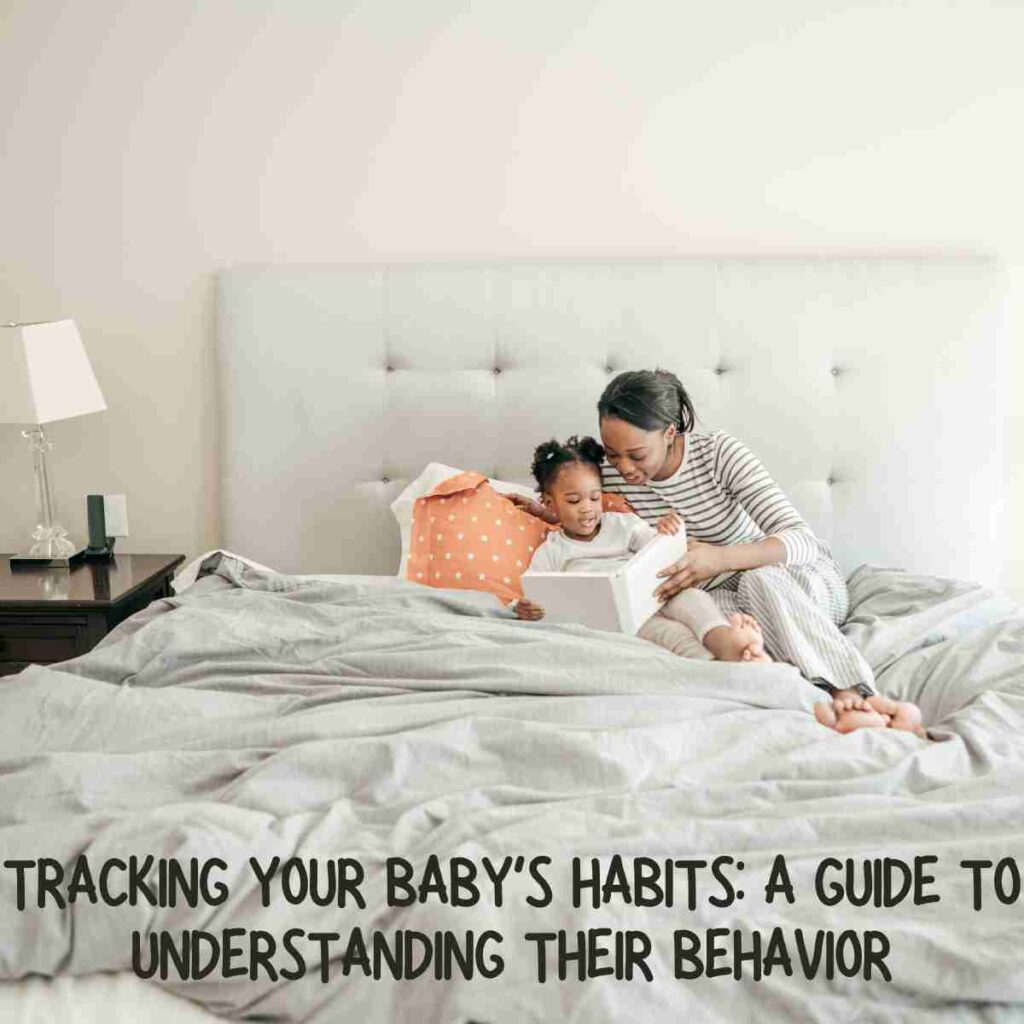It is important to track the baby’s habits to monitor the proper physical growth and mental development of a baby. You can track baby habits using an Excel sheet, notebook, word document, or with the help of an app. This progress chart of your baby will provide valuable information to your pediatrician.
Your pediatrician will be able to assess from this information whether your baby is reaching the milestones of development. Any deviation from the normal pattern would require medical attention.

Here’s a quick checklist of ways to track baby habits related to sleeping and feeding.
How to Track Baby Habits?
Feeding
You need to track baby habits like feeding to find out whether your baby is having enough milk or other food to gain the recommended weight. Once you prepare a chart of your baby’s feeding habits, whether breastfeeding or bottle-feeding, it will help your doctor figure out why your child is not gaining adequate weight. All infants are different and monitoring your baby’s habits will give you a clue on his hunger pattern and help you to establish a routine with your baby.
How to Track Feeding Habits?
- Write the time when you begin and end a nursing session.
- Keep a note of the breast you start with and the time of nursing on each of your breasts.
- If your baby is bottle-feeding, take into account the ounces your baby is consuming as well as the feeding time.
Right Amount of Food Baby Should Consume According to Age:
- 1st month: Your baby will bottle-feed or breastfeed every 2-3 hours. Bottle-fed babies should consume 2-3 ounces every 3-4 hours.
- 3rd-5th month: Your baby will bottle or breastfeed every 3-5 hours and should consume about 4-6 ounces. Between 4-5 months introduce your baby to solid food.
- 6th month: Your baby should bottle or breastfeed for 3-6 hours and should have a total of 4-6 ounces every 4 hours. At this stage, you should introduce your baby to mushy food in every 3-4 days.
In addition to tracking your baby’s feeding habits, you should also take into account the number of dirty and wet diapers your infant produces every day. This will help you to determine whether your baby is having enough food. On average, your infant should produce 6 wet diapers every day.
Sleep Pattern
You should track your baby’s sleep pattern to find out whether he/she is getting enough sleep according to his age. From your chart, your pediatrician will be able to assess any deviations in the sleep pattern of your child and how to prevent setbacks. Moreover, abnormal sleep patterns could be the cause of health issues, like reflux, which would require medical attention.
Procedure:
- Keep a note of the time when your baby falls asleep and when he wakes up.
- Take into account the reasons that woke him up. It could be either hunger or soiled diaper.
The Amount of Sleep Your Baby Needs According to His Age
- 1st month: Your baby will sleep for 15-16 hours every day.
- 2nd-4th month: Babies in their second month sleep more at night and less during the day. Babies in their 3rd and 4th months sleep for 15 hours a day. Your baby should nap for 2-3 times every day in his 4th month.
- 6th month and above: Baby sleeps for 15 hours a day with 2-3 nap times and sleeps longer during the night.
You need to track the baby’s health by keeping an eye on his feeding and sleeping patterns. Take into account his play activities to monitor his motor skills and sensory development. From your chart, your pediatrician will be able to ascertain variations in development and advise you accordingly.
Track baby’s habits for different activities this way and be a super mom.



